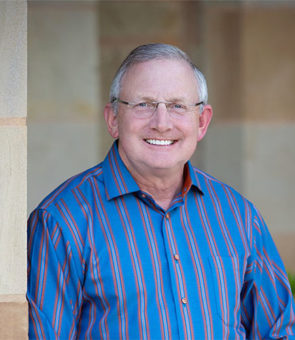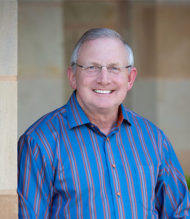Posted on December 12, 2022
Finding long-term success in any industry is a feat in itself. In this episode, John Anderson shares how he found his decades of success in pharmacy as the owner of B&J Pharmacy and Wimberley Pharmacy. John always knew he wanted to be a pharmacist and had an idea that he wanted to own one. Three decades later, he’s been the proud, happy, and proud owner of two small-town compound pharmacies that offer holistic healing options for the whole family. His secret – optimism. In his chat with host Steph Silver, John shares valuable insights into different topics such as compounding, drug interactions, health and aging. He also talks about how they managed the change in prescribing habits during the pandemic. Most of all, John explains how a positive mindset is key for a prosperous business and how to hiring for that disposition is also a valuable tool. Stay tuned!
—
Listen to the podcast here
Decades Of Success In Pharmacy With John Anderson
Our guest is John Anderson, a registered pharmacist and owner of Wimberley Pharmacy and B&J Pharmacy in San Marcos, Texas. Thank you so much for joining me.
It’s my pleasure. I was looking forward to it.
I have been looking forward to it as well. Let’s start off with you telling us a little bit about yourself before you came to be even a pharmacist.
I grew up in a pharmacy. My father was a pharmacist, and he had his own pharmacy. Those are my early memories. I enjoyed following him around. When it came time to go to college, there was one choice for me. I went to a pharmacy school here in Austin at the University of Texas and pursued my dream of owning my own business and helping the community I live in.
How did you find yourself down here in Wimberley?
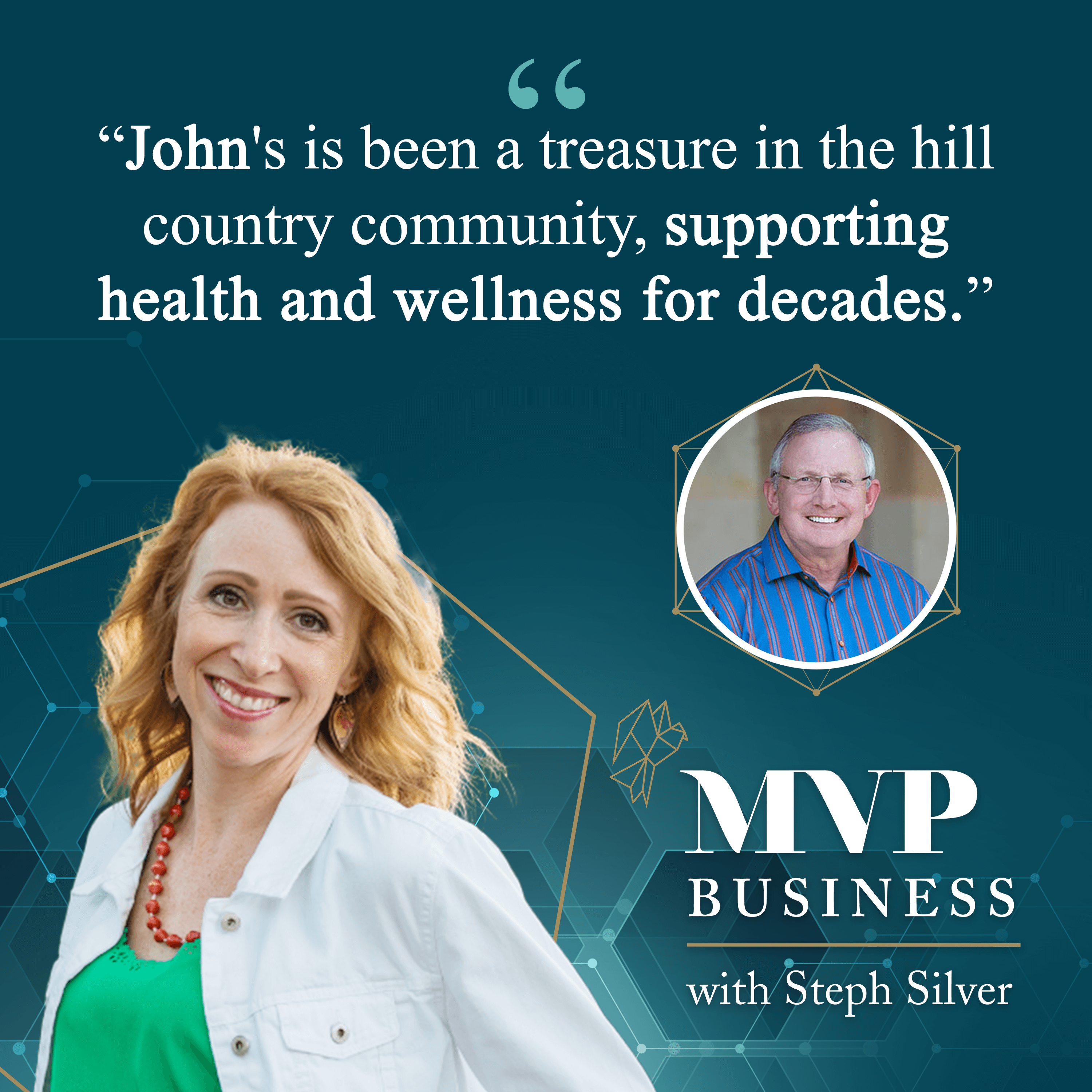
After college, I worked with a gentleman that opened a store in Wimberley. It was a family pharmacy. This was many years ago, in the late-’80s. I was working as a pharmacist in his store in Austin that he was managing, and then he moved to Wimberley and started the pharmacy here. I worked every other Saturday for him. I was young, out of college.
In college, you go to pharmacy schools, a 9:00 to 5:00 job, and then you had to pay for pharmacy school, so I’d work from 6:00 to 12:00 at a local pharmacy. They hired me after I graduated, and he was the manager of the store. He wanted every other Saturday. I came to Wimberley, and I fell in love with Wimberley.
We are talking about the early-’80s, so it was a very small town, and it felt right at home to me. I’d always grown up in small towns. My family is originally from Crawford, Texas, which is North of Waco. We had some properties there, and it was a small town. We were talking earlier about the 660 people living in a small town. In Crawford, we had 204 people in it on the population side when I was growing up. It’s up to about 600 people now. Now it’s the big city of Crawford. It’s fun.
You came to Wimberley, and you were working here. At what point did you decide to start your own pharmacy?
I’d always wanted to have my own pharmacy. I’d talked with several people about finding a pharmacy to purchase. Mostly, wholesale representatives that you would buy your drugs from. One of them came to me one day and said, “I have got a store for you. The gentleman wanted to retire, and it was B&J Pharmacy in San Marcos,” which I was living in Wimberley at the time. It’s a short drive down the road.
We worked out a deal with Mr. John Carson. He’s passed away, but he was 74 years old and has worked at that store since 1971. He’d bought it from Mr. Hillburn, who had it since the ’40s. It was William’s drug store when it was opened in 1901. The store came with a lot of history, and I like that. I got the original Mosler safe that came with it that the store had since 1901. It’s a neat antique. We still use it, and it still works. The penny scale as well, and that was fun. I have always had a passion for pharmacy. I look forward to going to work every day. I look forward to seeing people in the community and talking with them, and seeing if I can meet any needs they have. It’s flowered into a nice business and a great community I get to be a part of.
Why are you so passionate about pharmacy?
There are several different inputs here. Number one is you can help people. You can monitor their medications. You can have a big impact on their lives. Medicines are inherently dangerous. They are called dangerous drugs for a reason. They are behind the counter for a reason because they can have negative impacts. We know there are side effects and things like that, but being able to watch for that and also bring in to incorporate some wellness or some clinical nutrition, which the new term for clinical nutrition is functional medicine, we get to incorporate some strategies to help reduce the need for medications and to improve your health at the same time. That is what I focus on.
I’m glad we have all those prescription drugs, but if you need those prescription drugs, oftentimes, you are treating a symptom. A symptom might be high blood pressure. What can you do to help that in a functional medicine manner? Do you need to lose weight? Do you need to quit smoking? Do you have a mineral deficiency? Oftentimes some magnesium helps lower your blood pressure. It’s a random example, but still small things like that. If you can keep somebody off of medications, that is a win in my book or if you can reduce the need for it.
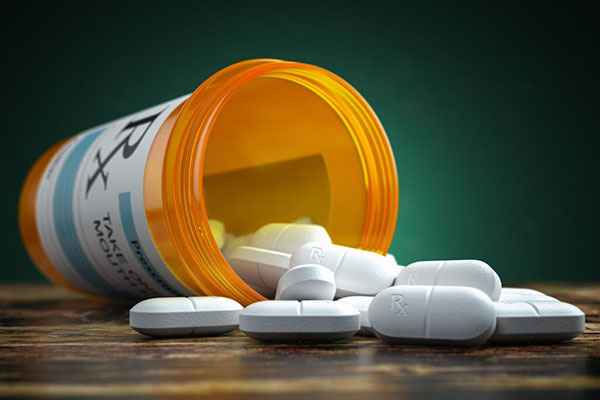
Pharmacy: If you can keep somebody off of medications or if you can reduce the need for it, that is a win in my book.
You can have the benefit of functional medicine or a lifestyle change without the possible side effects. At what point did you bring that functional medicine and compounding into B&J, the pharmacy you purchased? Was it already there?
None of that was there. It was a regular pharmacy in a very small location, like a 600-square-foot store. It had been on the square in San Marcos and was a large store. He lost his lease and found this one little spot. I moved the store to that location. It was on Hunter Road, but he didn’t have any of that. I incorporated compounding. I’d always been into compounding. Even my father compounded quite a bit, but I take it to the next level with certain therapies like hormone replacement therapy. Even dogs, cats, and birds, we compound for the whole family, I always say. We have got something for everybody.
The nutrition aspect of it was when I got into that, I was a pharmacist for probably 8 or 9 years, and you start to realize you’ve followed these same people. You see them. It dawned on me that they don’t ever get better. They just get more prescriptions. I was introduced to functional medicine and got interested in it. I started following that to see if I could prevent people from going down the prescription drug road where they eventually are on five prescriptions and increasing the dosage and side effects. If you are taking three medications, there’s a 100% chance you’ve got an interaction. They are all chemicals. They will interfere with each other’s metabolism and have different side effects when you combine them than they do separately. You need to watch that and find something else to do.
What I have done in my whole life was counseling on over-the-counter products. When you bring the nutritional in, they are over-the-counter products as well, and they have clinical uses as well. Everybody’s familiar with Benadryl as an antihistamine, but not everybody is familiar with quercetin as a natural antihistamine that makes you sleepy and doesn’t dry you out. It doesn’t affect your cognitive ability. Benadryl can make you sleepy. It’s one of the first antihistamines invented. I’m glad we have got it, and we still use it a lot. It’s got a great use, but oftentimes we have got something better.
Let’s back up a little bit and explain to people what compounding is for those who don’t know.
Compounding is personalized medicine. I will go back to the hormone replacement therapy model. It’s finding the right dose and combination for you, specifically. It’s oftentimes based on blood work, or a lot of times, we’ll do saliva testing to help pinpoint what we need to work on. That, in a nutshell, is what you are doing. It’s a medicine specifically for you.
Compounding is like personalized medicine. It's finding the right dose and the right combination for you, specifically, oftentimes based on blood work. Click To TweetDo you do the blood work and saliva testing in the office? Do you take those samples there? Do you require that they go to their physician first?
The compounds always require a prescription. We have a physician involved at all times. I’m more of a consultant for what dosage might be needed and what changes might need to be made, but I always work with a physician. It’s a pharmacist, physician, and patient triad that we follow.
Do you have conversations with the physicians as well during that compounding determination of what’s necessary? Do you have to go through the patient? I haven’t worked with or been very lucky not to have to need anything like this yet, so I’m unfamiliar with the process or what should be expected.
It happens both ways. A lot of doctors are perfectly willing to pick up the phone and call me and talk about it, or I call them about specific patients. Oftentimes, I get the patient to talk to the doctor about it, and they make a collaborative decision on what they want to do.
As a traditional American, my relationship or experience with a pharmacist is to go to the doctor, get a script, go to HEB or whatever is local, especially when you are in the city. There are a lot more compounding and functional medicine pharmacies popping up around even the bigger cities. If someone has an ailment or a curiosity in their body, what would their experience be? Would they either go to their doctor, or they can go into Wimberley Pharmacy, B&J, or another local compounding pharmacy and say, “These are my symptoms. What can I do?” Is that what the process usually is?
That’s where it usually starts. I do individual consultations, and people will come in. I also offer saliva testing. When we get the results back, we sit down and have a conversation about what the results are and what might need to be done or what could possibly help.
What are some of the most common ailments that you treat with or are able to help with more functional or compounding versus the straight-narrow?
With regular prescriptions, your dosage forms and combinations are limited. You can get estrogen and progesterone. You can get even cortisol, but they are in fixed dosages. It’s always been, in my view, anyway. You have three dosages, yet you’ve got a population where everybody could use a specific dose. Everybody’s different. Why don’t we tailor this? Let’s take some blood work or saliva work and figure out if what you are taking is adequate and is bringing your levels where they need to be. If you feel good, that’s the kicker.
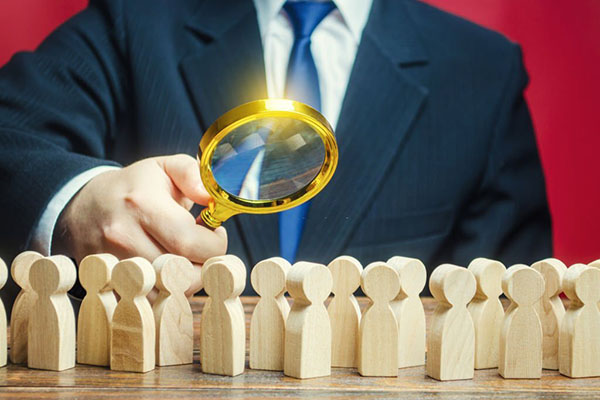
Pharmacy: You have three dosages and yet you’ve got a population where everybody really could use a specific dose. Everybody’s different. So, why don’t we tailor this?
A lot of times, medicine looks at the numbers on the lab results and doesn’t ask you how you feel. The lab results are a tool. Also, with functional medicine, it’s how you feel. Where’s your energy level? How are you sleeping? We have to ask a lot more questions to narrow down and get specific about what might be best for you.
Your blood pressure may be down, but you may still be feeling anxious, or whatever is the cause of the blood pressure being elevated. How have your philosophies about medicine, functional medicine, and all the different therapies evolved over the years? Where do you get your information?
There are a number of different sources I get my information from. I’m a member of several different organizations that have regular meetings, like the functional medicine group and my international and American Academy. We have a clinical nutritionist with that we have regular meetings and go over the latest research and what is new or a new use for something old. That comes up a lot because there are not a lot of new things out there. It is oftentimes older or has been around a long-time herb that we find that works good for anxiety too. It’s a quick example here. That’s all. I do that, and my drive behind it has always been to selfishly find what’s best for me but also be able to use that in my practice and use it to improve other people’s lives.
Since you’ve been a pharmacist for so long and having those direct interactions, you’ve been able to watch how the patients have evolved and how they react to each of the treatments you recommend.
I have been in this community for many years. I have been practicing in this community for about that long as well, in one form or another. I have seen people go from 30 to 60 or 60 to 90, and you see how people age. I have been able to help. I have been a help to a lot of people to help them age well. That age is nothing anybody wants to admit to, but it’s going to happen. It’s here. The choices you make when you are 30 impact what goes on when you are 60. When I have my consults, I always tell everybody, “You’ve got to have a twenty-year vision line, at least. What do you want to look like in twenty years?”
It’s not just your financial retirement. What is your health retirement look like?
What’s that going to look like? The average American gains 12 pounds a year. Do you want to be this after 50? You gain 12 pounds a decade. In 30 years, do you want to be 30 pounds heavier? What can you do to prevent that? When you get fat, that’s an inflammatory disease. Obesity is a metabolic disorder. It’s an inflammatory condition. It causes your body to age faster. What can we do to prevent that? What movements are best for your brain? What do you want to become in twenty years in your retirement and/or how do you want it to look?
Obesity is a metabolic disorder. It's an inflammatory condition. It causes your body to age faster. Click To TweetOne of the things that I learned as I watched my grandmother age, my mom said to me that my grandmother didn’t think about how the ability to stand up off the couch without using your hands increases your ability to do absolutely everything. You talk about obesity or being overweight. Once you start losing that mobility, it spirals out of control because one thing leads to another.
Once you are less able to be mobile, then it increases obesity, which increases inflammation. It increases your need to rely on other people and the need for medication, which has other side effects and can lead to everything else. Not everybody, but some people think about the food we put in our body and the need to stay thin for visual aspects, but that long-term health implication of not being thin for the sake of your visual representation but being fit for your long-term mobility.
I have a neat machine that I incorporate into my practice, too, because you can be skinny and still be fat. I have a body mass analyzer that I put everybody on that comes in the office, and it gives your percent body fat and muscle mass of each arm and leg. It gives you indicators that help you know what your true fitness level is. As we age, not only do we get fatter, but we lose muscle mass as well. As your hormones decline when you age, your muscle mass goes down as well. We get sarcopenic. It’s the term for loss of muscle mass. You get weaker as a result of that. In Florida, the most common reason women go into a nursing home is because they can’t get off the toilet by themselves. They can’t take care of themselves.
Their brain is fine, but they physically don’t have the strengths to do that. It’s monitoring that, knowing where you are, exercising, and moving the body to maintain that muscle mass. I went on a seven-day Colorado River rafting trip through the Grand Canyon and all the Wimberley people. One of our group was 89 years old, and he took every step I took. Every trail and everything, he did hikes I didn’t do. It was amazing. People like that are an inspiration to me. The guy works out every three times a week. He’s in the gym at least once a week with a trainer and is one of my heroes.
I’m glad you mentioned part of his routine. My step-father-in-law is 98, and he started using a cane. That’s by force. His wife made him because he started falling, but he’s a couple of years away from 100. I asked him several years ago. I said, “You amaze me.” He fought in World War II, and everyone else his age that I know that’s still alive back then even was in a cane or a wheelchair. Once your body starts to decline, your mind also starts to decline, and then you get into depression and all sorts of different things. He said that he was in the military and developed or took on a routine by the Canadian military.
Every morning he would make himself get up and do this calisthenics. For a long time, you would go to the gym and run and do all this stuff. Over time, that lessened and lessened, but he still made himself up every day, get up and do something. He would do sit-ups, pushups, or something to keep himself physically fit. He still drank a little bourbon here and there, ate bacon, and did all the things to enjoy life. He also said, “Everything in moderation,” which is a big thing as well. You can enjoy all the things, just don’t gorge on it. The big thing for him was that he had the discipline to get up and be physical so that he could continue to be physical in his aging years, and now he’s almost 100.
That’s inspiring. I saw an interview with Mick Jagger. He gets up every morning and exercises as well. He dances. He does his stage routine. He says, “I hate going to the gym, but I got to do it because you don’t want to get old.”
I remember when I was in kindergarten, I started dancing around the house and saying that this was the best form of exercise. I have been doing that ever since because I don’t like going to the gym either, and I’m not disciplined about it, but I love to turn the radio on and dance. That’s my general routine. You move every single muscle in your body. That’s what I do. Not everybody does. Physical fitness is a big part of aging well and staying healthy. What other general recommendations? Everyone has their own biology, DNA, and history. What are some other habits, herbs, or supplements that you recommend on a regular basis?
A lot of it is specific to what you might need. For older guys like myself, I like ginseng and cordyceps, a combination of those. Sometimes some ashwagandha for stress. It works well. It’s very calming and keeps you alert as well. Those are just a few things. There are a lot of things that I recommend, but not for everybody. If you don’t have a problem with sleep, muscle spasms, inflammation in your joints, or things like that, then just a good diet.
What does a good diet mean to you?
There are so many different ones. I know the one that is very low in heavily processed foods. Anything in a wrapper is heavily processed. If it comes in a wrapper, it should probably be minimalized. We are talking about real food. Meat and vegetables are what I stand on. You can have starchy potatoes here and there, but you got to portion-control it. Most people’s portion, like for pasta, is a whole plate of pasta, and that’s not right. There are too many carbs. Not that you can’t do it every once in a while, but you’ve got to watch the processed food. Pasta is processed. It’s a high concentration of carbohydrates that is not necessarily good for you in large amounts.

Pharmacy: Anything in a wrapper is heavily processed. If it comes in a wrapper, it should probably be minimalized.
What’s your opinion on keto? That’s a popular diet now. It always scares me.
I know a lot of people that use it. I know a lot of people that do really well with it. I don’t find it scary with ketosis. Everybody goes into it when they are sleeping anyway. You wake up in the morning, and you are in ketosis. You are burning body fat. A lot of people will use resting, burning fat, and metabolism. Some days I won’t eat lunch until noon or 2:00. I feel like I’m getting a little heavy around the waist, and it works. You’ll burn fat for a little longer. You’ll reduce your calorie intake that day. A lot of people that use keto will eat for eight hours from 2:00 to 6:00 or 7:00. That’s the only time they will eat and fast.
A lot of people at the gym do it. I know my trainer does it, and he’s 4% body fat, but he does that stuff for a living. That’s unattainable for the average person. I don’t expect anybody to get down to that level of fitness or up to that level of fitness, but maintaining proper body fat is helpful for aging purposes and general health. You don’t see very many skinny people with chronic metabolic problems. When I say that, I will talk about diabetes as a metabolic condition. Type 2 specifically. Type 1 is insulin-dependent diabetics. It’s a different breed. Type 2 diabetes is typically someone who is maybe heavy, has a large gut, and has inflammatory conditions. Those people could benefit from using some ketosis.
For those who don’t know much about the keto diet or what ketosis is, can you describe the basic tenets and why it’s beneficial?
The keto diet is nothing new. The Atkins diet is what reminds me of more than anything, which is a high protein, relatively high fat, and very low carbohydrate diet. With the low glycemic index of vegetables, you can eat them freely. It’s stuff like broccoli or asparagus, Brassicaceae, as in general, cabbage, are good carbohydrate sources, but they do not impact your blood sugar.
Blood sugar control is pretty key. If you are going to eat a lot of pasta, it turns into blood sugar rapidly, and so you’ll burn that instead of fat. The other thing you have to remember is that the only place fat is burned is in the muscle. You have to move your muscle in order to burn fat. If you want to lose weight, you are going to have to move because that’s the only place you can move the fat to and use it as fuel. Fat is storage, and energy stored up for you. You have to move enough to be able to convince the body to mobilize that and use it as fuel.
Fat is just energy stored up for you and you have to move enough to be able to convince the body to mobilize that and use it as fuel. Click To TweetWe talked about the San Marcos Pharmacy. When did you buy or open Wimberley Pharmacy?
Wimberley Pharmacy I bought from Al Sanders, who was a previous owner. He’s still here in Wimberley and very active in the community. He’s always been a great guy. He put his pharmacy up for sale, and I came in and said, “I want it.” We worked a deal out, and it worked out good for us. That was in 2004 when that happened.
Has your dream of owning a business or pharmacy lived up to your vision for what you wanted?
Yes. You don’t know what you are getting into until you get into it, and you don’t know where it’s going to grow until you keep growing it. It’s been a perpetual growing process. I read a lot every day, and I learn a lot. I talk with a lot of people every day. I enjoy what I’m doing, and it’s growing and doing well.
How do you determine which pharmacists to bring on staff?
Fortunately, I have got a very stable pharmacy crew. Both technicians and the pharmacists I have all worked with me for quite a while. Some of the technicians and the people that process the prescriptions are here in Wimberley, especially since most of those people have been working for me for over ten years, which is a long time. Anybody that goes in there probably knows them by name because of their characters, and they have a good time while they are working.
We are customer service. It’s all about customer service. It’s not as much about technical ability as it is. It’s how you relate to people. In hiring, what I look at is how you relate to people and what your attitude toward work is. You want a positive attitude. You want somebody that’s dynamic that can talk to people because there’s a lot of talking to people. Somebody’s got a question, they want to talk to pharmacists about their drugs, and you need to have somebody that can communicate. We have got some good folks.
I agree with that philosophy of hiring. Skills can always be taught and molded, and processes can be changed, but the personality is there, to begin with, so I appreciate that. I’m semi-new to living in Wimberley, but I have heard all about Wimberley Pharmacy for years and years, and everyone loves and attests to the service provided and the willingness to listen and make recommendations versus fill the script and move along. Well done. Now that you have this solid staff and you’ve been running the pharmacies for so long, is there anything that you would go back and do differently?
In some respects, yes. We are always our own worst critic or best critic. It’s the way you look at it. I would build a bigger pharmacy. I built my B&J store. I built a new location for it because it was cramped, a little 600-square-foot pharmacy. If I’d go back, I will always build bigger and better. Sometimes when I look at what I do, sometimes I don’t think big enough. I think I’m doing big. I’m looking to the future, but then I’m like, “I should have done that a little bigger.”
That’s a good point. When you are in that space of trying to make that decision, was it fear or lack of foresight that kept you from being bigger?
I would say it was not knowing. Nobody can know the future. I built that store right after the financial crisis in 2008, so there was a little bit of a money scare. That slowed me down a little bit. In retrospect, it was ill-placed. I shouldn’t even look at that or put that in the equation. We were going to be all right regardless. Whether you are going through a pandemic or the Great Recession, you are going to come out on the other end okay, and you got to have that attitude.
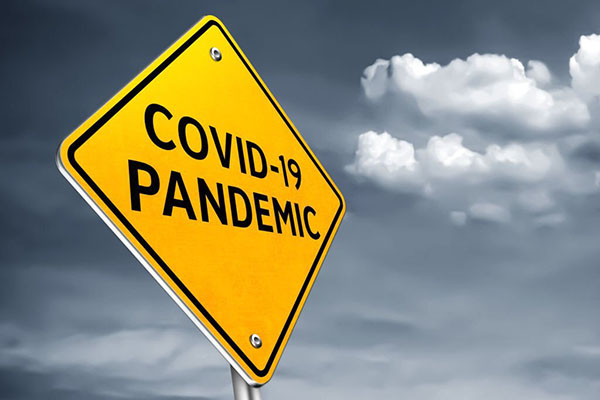
Pharmacy: Whether you’re going through a pandemic or whether you’re going through a great recession, you’re going to come out on the other end.
No matter what the media or everybody else is saying and no matter what the fear level is, you got to put a smile on your face and keep going down the road saying, “This is going to be okay. We are going to get through this.” I wasn’t doing that enough when I looked back at it, but that’s one thing. I enjoy where I’m at. As far as success, I’m blessed. This has been a great ride for me.
I loved so much what you said because it is valuable for everyone. There’s always something to be afraid of. There’s always something to doubt, but there’s also always something to look forward to. There’s always a reason to smile if you think about it. There’s always something to be positive about. Now, whether in every source of news, there’s something to be afraid of. That’s part of their job.
Bad news sells better than good news. That’s one of those things.
I can’t remember the name of the actor, but during COVID, he had a show called GoodNewsNetwork, and it was on YouTube. He specifically went out and sought out good news and showed nothing but good news. It was everybody else him in his office showing these, whether it be a birthday party parade or drive-by parade and things like that were going on, people donating a bunch of money to keep a business they love alive, or whatever it was. We need more of that. Unfortunately, some big network purchased it, and it was never the same again. It went away because the networks didn’t know how to do good news. Talk to me about how COVID affected your views, operations, and business, or did it? It did in the beginning.
It did. In the last couple of months, we have been back to what I would call normal. We were talking about February of 2020 when things started to take a nose dive, and people got, “Here we go with fear again.” People got afraid, and the governments responded, and we had lockdowns and did all kinds of stuff. We ran the Wimberley Pharmacy in the parking lot for four months. Nobody came into the store. It affected the sales inside the store. I had all my crew going out to cars doing curbside pickup for four months.
Everyone was pretty much only doing essential prescriptions at that point that’s coming in to say, “How can I be better? They are going to hold up.”
People quit taking their drugs too. They wouldn’t get out of their house. We had that, and we had an incredible spike and the number of antidepressants and anti-anxiety medications being prescribed, and pain meds. All the stuff that you normally don’t see a lot of, you start seeing a lot of it. It was a change. Prescribing habits changes the whole atmosphere of life. It was a big change, but we got through that, opened the stores back up, and went through everything necessary.
There was definitely a change in prescribing habits and just the whole atmosphere of life during the pandemic Click To TweetWe then got vaccines, and that was a game changer because, at first, they dribbled the vaccines out because they wanted mass injection sites. They didn’t give retail pharmacies any vaccines. I remember my first shipment, and I got 100 at each store. I ordered 1,000. I got 100. Slowly after that, when the vaccine supply picked up, we started working with the health department, and we’d get ample vaccine from them so that we could ramp up a vaccination program.
Over those two years, I bet we did over 10,000 vaccines. I know for a fact at least that many. I have looked at the number in a while, but it was a lot of work. On top of what we were already doing, there was a little more stress in the working environment, but we were able to talk through that with everybody and get on down the road and here again. You’ll put a smile on your face and say, “This too will pass. We have to keep going,” and we did.
Is it your belief that the vaccines helped? Do you believe that, like other new diseases, COVID made its own downward path?
You almost don’t want to say anything bad about the vaccine because people overreact to that too. Are there some bad aspects to the vaccine? Yes. There are some side effects associated with it.
Like you said, all medications have side effects.
Every single one of them. There were going to be side effects regardless of what anybody said. As far as safety goes, the vast majority of people were okay with it. We could have a whole show on what I think about the vaccine, but it served a purpose. It got us through where we needed to go. It doesn’t look like COVID is going to come back and be terrible again. I think most people have been exposed to it and have gotten it. You’ve got your own natural antibodies, which are fabulous and which do work on a much bigger level than the vaccine. You’ll have antibodies to the virus instead of one part the vaccine gives you, which is a spike protein. That gives you even better immune protection.
What’s the hardest decision you’ve had to make throughout your career, business, or life?
I don’t look at decisions as hard or easy. It’s a necessary part of life. I look back on my best decisions. I will turn that around on you a little. I married my wonderful wife. I met her here in Wimberley and have been here ever since. That was a great decision. Another great decision was buying my first pharmacy. As far as bad decisions go, I don’t think I have made any terrible decisions. Everything has seemed pretty natural to me. I haven’t seen anything as extremely difficult. College was a challenge. That was one of the most difficult things I have done. You put yourself through pharmacy school and work full-time as well. That was tough. As far as a decision, I’m not going to say I’m betting $1,000, but I’m up there.
What I’m thinking is a positive and sunny disposition changes your way of looking at decisions. Do you have made some big decisions that could be scary for people, like purchasing a business or building a building in San Marcos during a tough time in economic history in America? Those all worked out well for you. Are you naturally disposed of? Is your family naturally disposed to that sunny disposition? Does it happen naturally? Do you handle roadblocks and challenges with that outlook of there’s always a possibility of something good happening?
I’m an optimist. I look at everything like that. There will be something good coming out of everything. You are outside of losing a family member or something like that. You are going to have choices to make and a good disposition. Like I said, we were talking about hiring earlier. Hiring for that disposition is also a valuable tool.
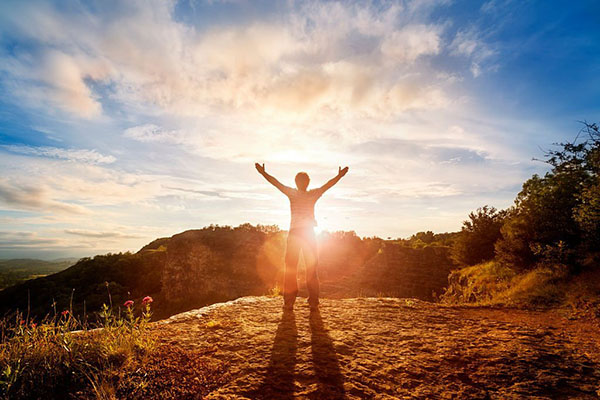
Pharmacy: There’ll be something good come out of everything.
What do you think you’ve learned? What’s been your greatest lesson through these years?
My greatest lesson is to get up every morning and keep going. No matter what’s facing you, you just got to go. I will go back to the pandemic. That was the only time I started, “We are going to do another 150 vaccines, and we have all these people.” You’ve got all these masks. Fear brings out the worst in people. You get to deal with that when you’ve got angry people or people who aren’t wearing their masks right in your store. You have to calm them down, smooth out all the ruffled feathers and keep going. Those are things that you don’t see every day in a retail environment anyway.
It has gotten interesting. It used to be that you were somewhat aware that everyone was secretly judging everyone for your hair, what you are wearing, or what you look like, but all of a sudden, it was this micro attention on every decision. It does feel like it’s lightening up, or less people have that heightened level of watching through the windows to see if you have people at your house, or whatever it might be, but it was pretty intense there for a little while.
The fear factor comes into play, and the unknown is what we were dealing with. There’s a good thick layer of fear on top of that, and it changes people a little bit, but like you said, we are getting through that for the most part. Like I said, in the last couple of months, we are back to normal. On paper, we are back to normal. The numbers are all lining up again.
I want to mention that I was thinking that I heard a while back a good statement that no good decisions are made from a place of fear. Like everyone else, I personally have been in a place of fear because of COVID and all the other things that have been happening in my personal life. I have a business coach that I haven’t mentioned in a while. Bill Small is fabulous. One of the things that he had me do when I was going into a stressful situation was to tell me to remind myself that I was going in with love and going in with this feeling of optimism that there was something good going to come out of this.
I know not everybody has that optimistic way of looking at life, or even they come to life in such a crazy place that it’s hard to see life from a place of optimism when they have been struggling throughout their lives. It is a habit that can be changed over time by almost rewiring to train yourself to pause for a minute and come to it with different lenses. You can change two rose-colored glasses when you choose to.
This is true. That’s always been my attitude and my belief too. You are the master of your attitude. You are the master of your outlook on life. You can change those things. There’s no reason, in my book, to have a negative view of the future because you can control it. You are in control.
There have always been tough times. There’s always been a tragedy, war, and death. There’s also always been love and happiness, so you can choose which one to focus on. Like you mentioned, obesity is an inflammatory disease that affects absolutely everything, so as fear and stress. Speaking of fear, what advice would you have for anyone out there thinking they may want to take a leap and follow a passion or start a new business?
When I started, I learned pharmacy as best I could. I ran a pharmacy. I worked for Peoples Pharmacy in Austin for twelve years and was able to get an insight. The owner was Bill Swail. He’s passed away, but he supported me and helped me get started in this field. He gave me an idea of what it was like to be an entrepreneur. He gave me the idea to go, “You go out on your own. You can do this.”
I got into it. It looked pretty easy from that point, but the hardest part was taking that leap and going and doing it. If you know it will work and you know how to do it, you need to go for it. Don’t wait. I knew my decision path. I had wanted and knew I was ready, but it took me four years to pull the trigger. I didn’t think that when I found B&J Pharmacy or bought it, it would take three months from making the decision to make those phone calls to me owning a pharmacy. It could happen fast once you make the decision.
It took me four years to do that. I look back on that, and I’m going, “You need to do better next time.” I did. The next time Wimberley Pharmacy I heard was for sale, and 30 days later, I was the owner. You have to believe in what you are doing and know you can do it, and just do it. If you know yourself, what the business is all about, and the market, there’s no reason not to do it.
That’s a great place to close out this episode. Thank you so much for all of your insight and for sharing your story with us.
Thank you for having me. It was a pleasure.
Thank you for reading. If you like it, tell your friends. Follow us on Instagram and LinkedIn. The mission of the show is to dig deep into the lives of true leaders so that others can follow, knowing that the path isn’t always easy, but the journey is worth it. Enjoy the day and live with passion.
Important Links
- Wimberley Pharmacy and B&J Pharmacy
- Instagram – MVP Business
- LinkedIn – MVP Business

